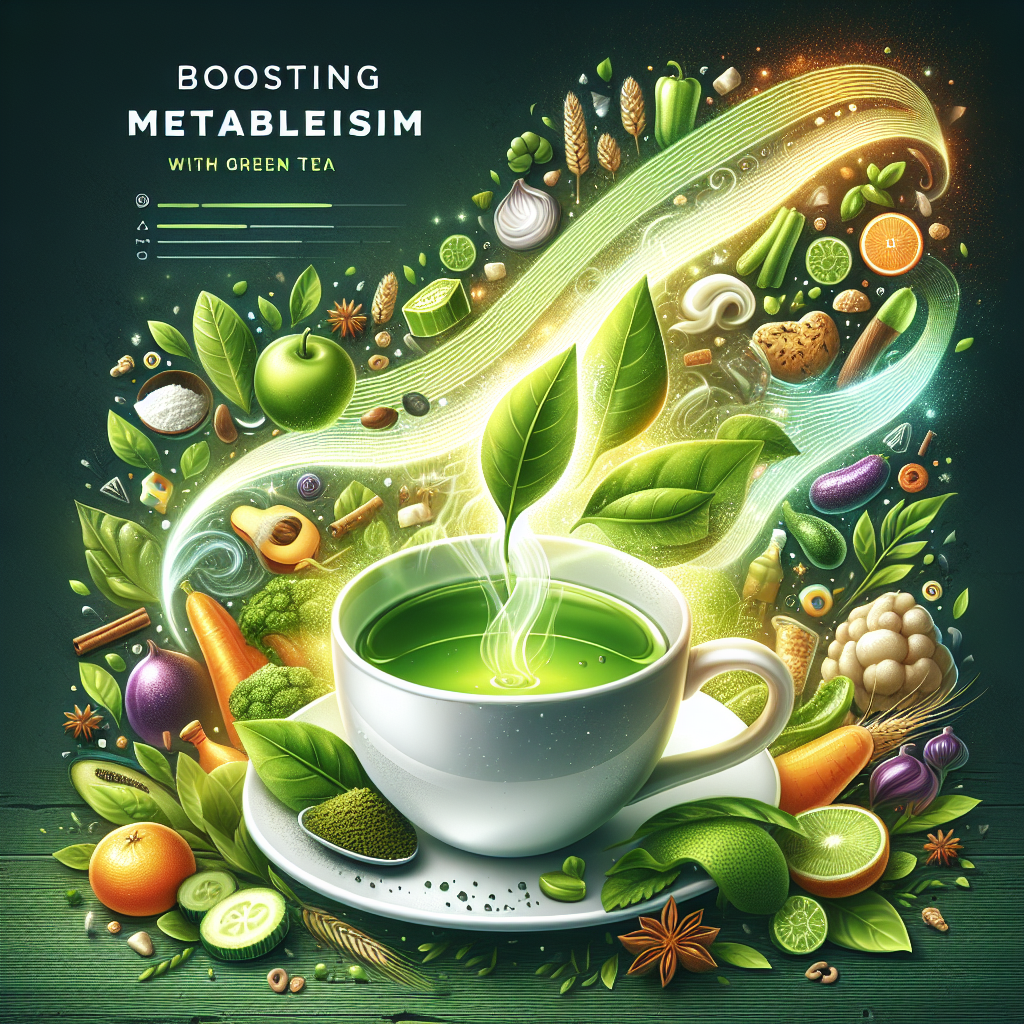How to Boost Your Metabolism with Green Tea
In the quest for better health and weight management, many people turn to natural remedies and lifestyle changes. One such remedy that has gained significant attention is green tea. Known for its numerous health benefits, green tea has been hailed as a metabolism booster. But how exactly does green tea influence metabolism, and what are the best practices to maximize its benefits? This article will delve into the science behind green tea and metabolism, provide practical tips for incorporating it into your daily routine, and address frequently asked questions.
The Science Behind Green Tea and Metabolism
Metabolism refers to the chemical processes in your body that convert food into energy. A faster metabolism means your body burns calories more efficiently, which can aid in weight loss and overall energy levels. Green tea contains several bioactive compounds that have been shown to impact metabolism positively.
Catechins
The primary active compounds in green tea are catechins, particularly epigallocatechin gallate (EGCG). Catechins are a type of antioxidant that helps to protect cells from damage and reduce inflammation. EGCG, in particular, has been shown to boost metabolism and increase fat oxidation.
Caffeine
Green tea contains a moderate amount of caffeine, which is another component thought to aid in metabolism. Caffeine is a well-known stimulant that can increase energy expenditure and fat burning. While the caffeine content in green tea is lower than in coffee, it still provides a mild metabolic boost without causing the jitters often associated with higher caffeine intake.
Thermogenesis
Thermogenesis is the process of heat production in organisms. Some studies suggest that green tea can enhance thermogenesis, thereby increasing the number of calories burned. The combination of caffeine and catechins in green tea is believed to work synergistically to promote this effect.
Practical Tips to Incorporate Green Tea into Your Routine
Choose Quality Green Tea
The quality of the green tea you consume can significantly affect its effectiveness. Opt for high-quality loose-leaf green tea or reputable brands that ensure minimal processing and maximum retention of beneficial compounds. Avoid green tea with added sugars and artificial flavors, as these can negate some of the health benefits.
Proper Preparation
To maximize the benefits of green tea, it’s essential to prepare it correctly. Use fresh, pure water and steep the tea leaves at the right temperature (about 160-180°F or 70-80°C) for 2-3 minutes. Oversteeping can lead to a bitter taste and reduced potency of the beneficial compounds.
Consistent Consumption
Consistency is key when it comes to reaping the metabolic benefits of green tea. Aim to drink 2-3 cups per day, spaced out throughout the day. Drinking green tea in the morning can provide a mild caffeine boost to kickstart your metabolism, while a cup in the afternoon can help maintain energy levels.
Combine with a Healthy Diet and Exercise
While green tea can aid in boosting metabolism, it is not a magic bullet. For optimal results, combine green tea consumption with a balanced diet rich in whole foods, lean proteins, and healthy fats. Regular physical activity is also crucial for maintaining a healthy metabolism and overall well-being.
FAQs
1. How much green tea should I drink to boost my metabolism?
To experience the metabolic benefits of green tea, it is generally recommended to drink 2-3 cups per day. However, individual tolerance to caffeine and personal health goals may influence the optimal amount for each person.
2. Can green tea help with weight loss?
Yes, green tea can support weight loss by boosting metabolism and increasing fat oxidation. However, it should be part of a comprehensive weight management plan that includes a healthy diet and regular exercise.
3. Is it better to drink green tea hot or cold?
Both hot and cold green tea retain their beneficial compounds, so the choice depends on personal preference. However, avoid adding excessive sugar or sweeteners, as this can diminish the health benefits.
4. Are there any side effects of drinking green tea?
While green tea is generally safe for most people, excessive consumption can lead to side effects such as insomnia, headaches, and an upset stomach due to its caffeine content. It is also advisable to consult with a healthcare provider if you have any existing health conditions or are taking medications.
5. Can I take green tea supplements instead of drinking tea?
Green tea supplements are available and can be a convenient option for some people. However, they may not provide the same synergistic benefits as drinking the tea itself. Additionally, supplements are not regulated as strictly as food and beverages, so it’s crucial to choose high-quality products from reputable sources.
6. Does decaffeinated green tea offer the same metabolic benefits?
Decaffeinated green tea contains fewer catechins and less caffeine than regular green tea, which may reduce its effectiveness in boosting metabolism. However, it can still offer some health benefits and may be a suitable option for individuals sensitive to caffeine.
Conclusion
Green tea is a natural and effective way to boost your metabolism and support overall health. Its unique combination of catechins, caffeine, and other beneficial compounds can help increase calorie burning and fat oxidation. By incorporating high-quality green tea into your daily routine, along with a balanced diet and regular exercise, you can enjoy its metabolic and health benefits. Always consult with a healthcare provider if you have any concerns or conditions that may be affected by increased green tea consumption.

